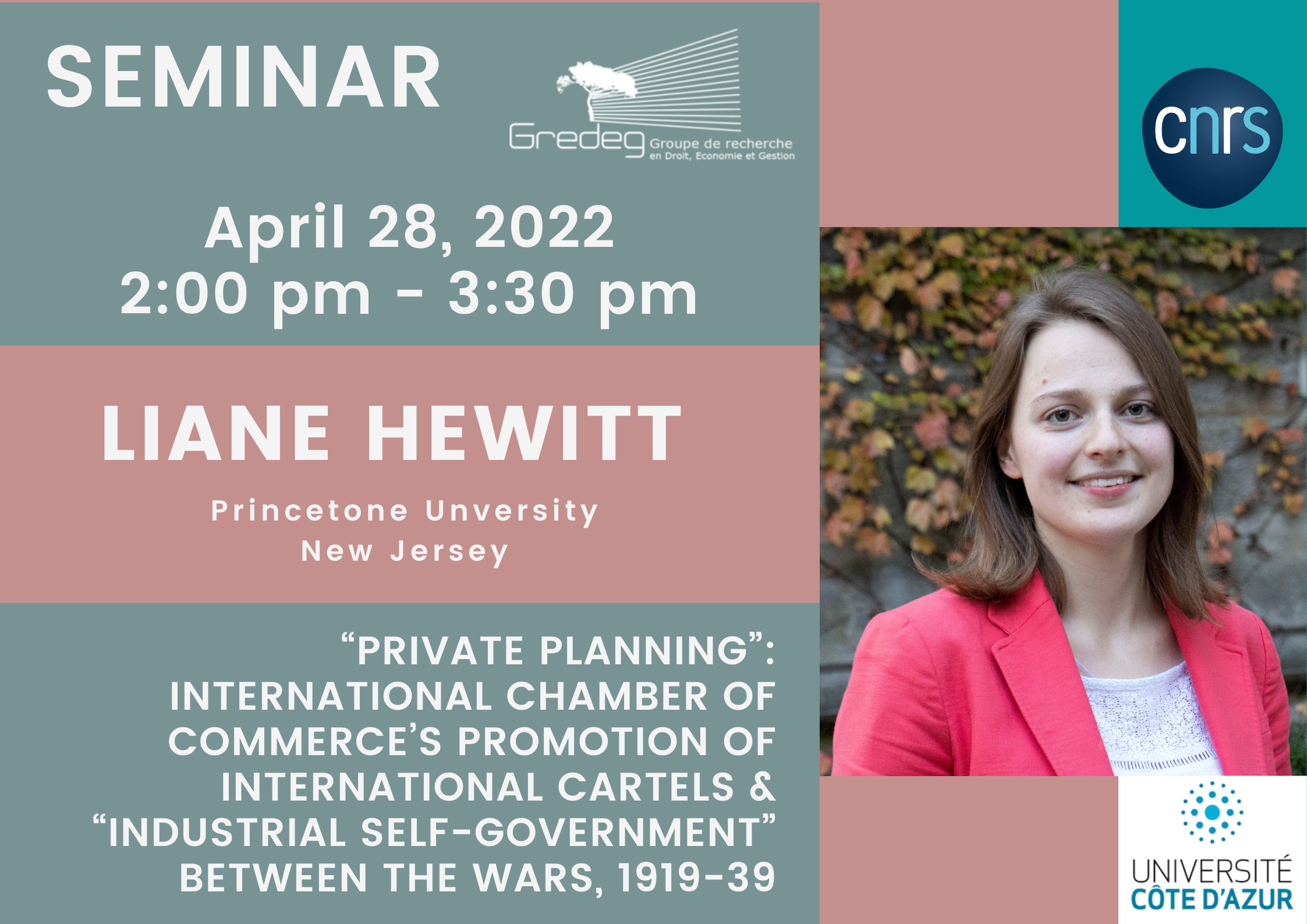Aller au contenu
Aller au contenu
Navigation
Accès directs
INTRANET / ENT
Séminaire GREDEG : Liane M. Hewitt (Princeton University - New Jersey)
Publié le 1 avril 2022
–
Mis à jour le 28 novembre 2022
Date(s)
Lieu(x)
GREDEG - Salle Picasso (14h00 – 15h30)

Date(s)
Le
28 avril 2022 14:00
- 15:30
https://gredeg.univ-cotedazur.fr/seminaire-gredeg-liane-m-hewitt-princeton-university-new-jersey

